June 29, 2025 | 08:06 GMT +7
June 29, 2025 | 08:06 GMT +7
Hotline: 0913.378.918
June 29, 2025 | 08:06 GMT +7
Hotline: 0913.378.918
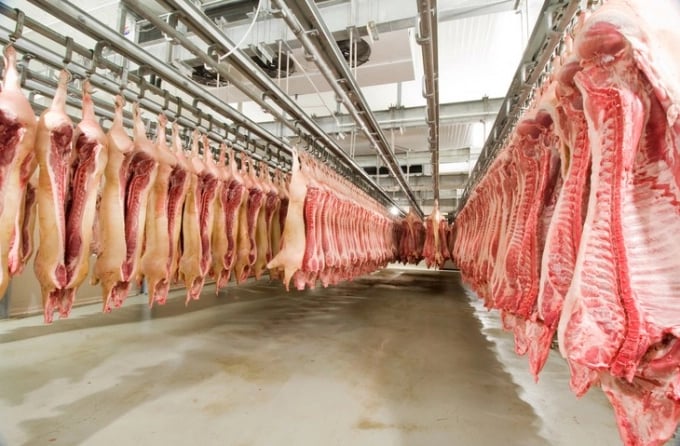
Pork imports increased rapidly in the first months of 2021. Photo: TL.
According to the General Department of Vietnam Customs, in the first quarter of 2021, Vietnam imported 34.65 thousand tons of pork (HS code 0203), worth US$ 80.07 million, increased by 101.4% in volume and 102. 3% in value compared to the same period in 2020.
Russia, Canada, Brazil, Poland, and Denmark are the 5 largest markets supplying pork to Vietnam. In which, Russia is the largest market supplying pork to Vietnam in the first quarter of 2021 with 16.55 thousand tons, worth US$ 44.85 million, increased by 1,116.5% in volume and up 1,002.1% in value compared to the same period in 2020.
The amount of pork imported from Vietnam has skyrocketed, the domestic supply is gradually recovering after being affected by African swine fever.
In addition, consumer demand is still low, causing live hog and domestic pork prices to tend to decrease continuously.
In detail, in the first quarter of 2021, domestic hog prices decreased after increasing in January 2021. The downtrend continued in April 2021. Currently, the average price of live hogs across the country ranges from VND 70,000-73,000 per kg, down VND 2,000-4,000 per kg compared to the end of March 2021.
African swine fever is well controlled. Pig herds on large farms increased rapidly. The supply of chicken, beef, fish, shrimp, and imported meat is abundant. These are the factors that make the price of live pigs forecast less fluctuate much in the near future.
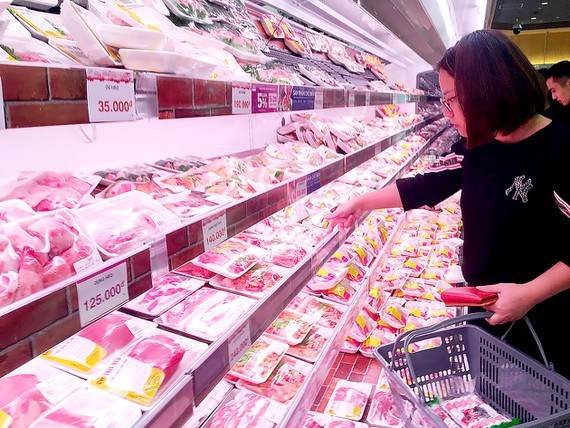
Customers buy pork at a supermarket in Ha Noi. Photo: Vietnamnet.
According to analysts, pork is still the most commonly consumed meat worldwide. An estimated one-third of all meat consumed in the world today is pork, followed by beef and chicken.
However, since the outbreak of African swine fever from 2018 to now, the total world pig herd has dropped sharply, leading to a shortage of pork supply and pushing up the price of this commodity.
Since the beginning of 2020, Vietnam has opened its doors to pork imports from Russia with an import tax rate of 0%.
The pigs in the Russian market are raised in a clean, strict hygienic environment, with a cool space. All foods are organic foods, according to the standards of the Ministry of Health. From food to environment, all must meet livestock standards.
In addition, pigs are regularly checked for health, fully vaccinated against diseases, so pigs here have few diseases and are always healthy. Those that do not meet the selection criteria when exporting will be immediately discarded.
According to data from the General Department of Vietnam Customs, the total volume of pork imported from Russia in the first quarter of 2021 was 16.55 thousand tons, worth U$ 44.85 million, increased by 1,116.5% in volume and by 1,002.1% in value compared to the same period in 2020.
In the opposite direction, data from the General Department of Vietnam Customs shows that in the first quarter of 2021, Vietnam exported 4.51 thousand tons of meat and meat products, worth US$ 17.04 million.
Meat and meat products are exported mainly to the markets of Hong Kong, Korea, and China. In which, exports to the Hong Kong market accounted for 71.53% of the total meat volume.
According to estimates by the United States Department of Agriculture (USDA), global pork consumption in 2021 is estimated to increase by nearly 5% compared to 2020 to nearly 101 million tons, lower than the 6% growth forecast in January 2021.
Excluding the United States is forecast to reduce consumption this year to 9.99 million tons, down 0.4% compared to 2020; other major pork consuming markets such as the EU, China, Russia, Brazil, Vietnam, Philippines, and Mexico all increased by 0.2% - 8.9%.
In the Vietnamese market, pork production in 2021 is forecast to increase by nearly 5% compared to 2020, to 2.59 million tons, according to USDA. Meanwhile, pork consumption will increase by 3.6% compared to 2020, to more than 2.78 million tons.
Translated by Ha Phuc
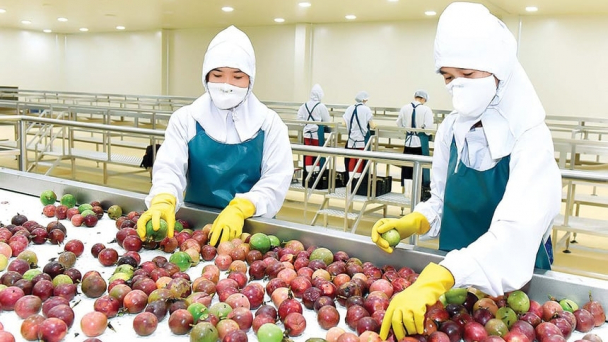
(VAN) Two newly signed protocols with China place Vietnamese passion fruit and fresh chili in a more transparent playing field, where exporting is just the first step; passing post-inspection is now essential.

(VAN) Flooding in NE Arkansas may shift the rice outlook downward.
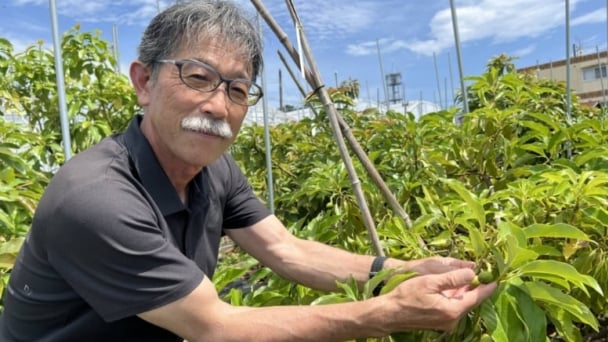
(VAN) Tsutomu Uchida, 64, wipes the sweat from his face as he walks through a farming plot filled with avocado trees in a port district of Shizuoka.
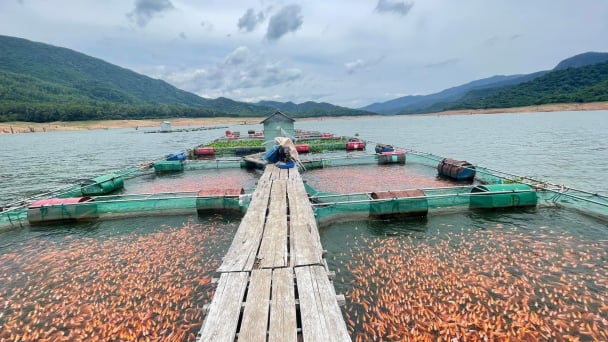
(VAN) At the request of partners, the agriculture and environment sector of Binh Dinh is determined to develop a red tilapia farming linkage chain in Dinh Binh reservoir that meets export standards.
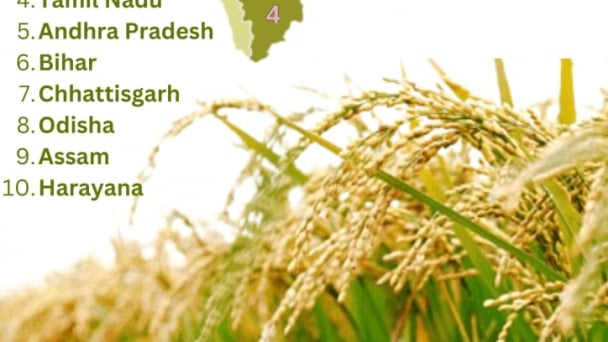
(VAN) Last week, the U.S. Department of Agriculture (USDA) released its June World Agricultural Supply and Demand Estimates (WASDE), raising projections for both Indian rice production and U.S. rice imports for the 2025/2026 marketing year.
/2025/06/17/2344-1-131758_261.jpg)
(VAN) Amid tariff risks and growing trade barriers in the U.S. market, Australia is emerging as a promising destination to sustain the growth momentum of Vietnam's shrimp exports.
/2025/06/17/2013-1-nongnghiep-112009.jpg)
(VAN) This notable growth trend reflects the global taste for fresh, nutritious fruits and the expanding use of lychees across various sectors.